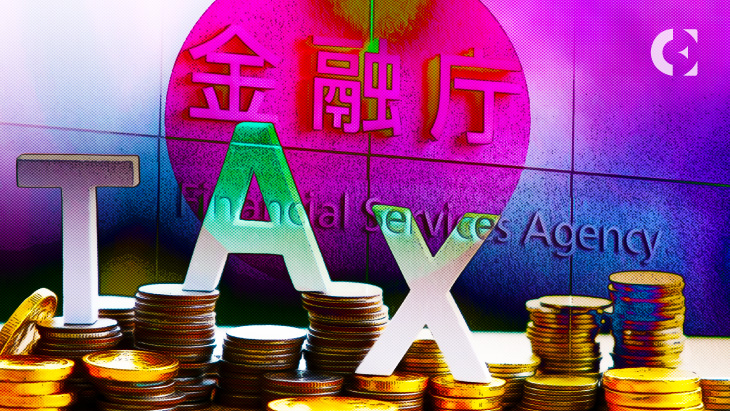- Japan’s FSA is proposing tax breaks for crypto investors.
- Crypto profits, including unrealized gains, are taxed at roughly 30% currently.
- Japan established a legal framework for stablecoins.
In favor of Prime Minister Fumio Kishida’s attempts to revitalize the economy, Japan’s Financial Services Agency (FSA) recommended relaxing corporate tax laws for crypto assets as well as reducing taxes for individual stock investors. Both of these changes would apply to private investors.
The financial regulator also said that there should be more support for a policy that gives tax breaks to individual investors and argued that businesses shouldn’t have to pay taxes on the paper profits they make from cryptocurrencies.
Currently in Japan, a corporate profit from crypto investments, including gains that have not yet been realized, is subject to a tax of around 30%. Some individual crypto investors might even be taxed up to 50%.
Furthermore, any activity that results in the generation of crypto-based revenue, such as decentralized financial lending, Bitcoin mining, or plain old cryptocurrency trading, is subject to taxation under the category of miscellaneous income.
The yearly proposal for modification made by Japanese authorities to the country’s tax law aims to introduce tax advantages in favor of private investors in cryptocurrency. Japan became one of the first major economies in the world to establish a legal framework for stablecoins when it approved legislation in June that essentially classifies stablecoins as digital currencies.
The stablecoin legislation states:
Stablecoins must be pegged to legal tender and ensure face value redemption. Only banks, trust corporations, and money transfer agents may issue stablecoins.
The present circumstance has been one of the primary motivating factors, for some time now, for the relocation of numerous Japanese crypto businesses to other countries. Investors have been seen migrating their crypto businesses to Singapore.
Disclaimer: The information presented in this article is for informational and educational purposes only. The article does not constitute financial advice or advice of any kind. Coin Edition is not responsible for any losses incurred as a result of the utilization of content, products, or services mentioned. Readers are advised to exercise caution before taking any action related to the company.







